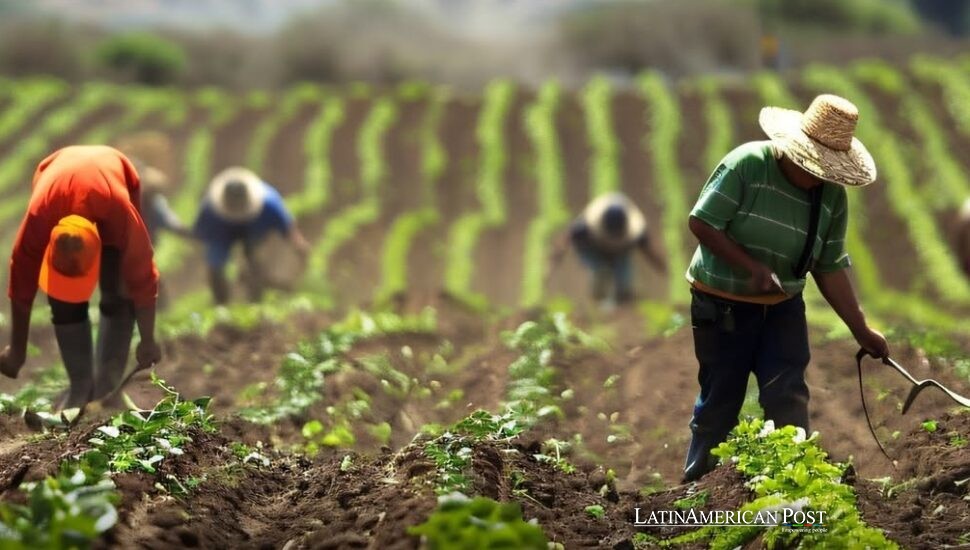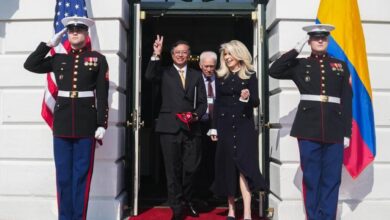Legal Visas Bring Guatemalan Farmworkers to U.S. Harvesting Opportunities

As Donald Trump nears his presidency, many Guatemalan farm workers face unexpected hurdles. The H-2A visa system lets them work legally in the U.S., but more rigid border rules put their income and family stability at risk.
Legal Pathways Amid Rising Tensions
The political winds in the United States are shifting rapidly as Donald Trump is set to reclaim the presidency next week. Among the many issues Trump is expected to prioritize is a crackdown on undocumented immigrants, many of whom hail from Central America, including Guatemala. The latest policy points to tighter immigration rules plus casts a shadow on many Guatemalan workers who need H-2A visas to help their families. Recent BBC interviews show how these rules affect the financial and personal aspects of thousands of people’s lives.
The H-2A visa program has long been a crucial legal pathway for Central American workers seeking temporary employment in the United States, particularly in the agricultural sector. Sandra Noemi Bucu Saz, a farm laborer from Santiago Sacatepéquez, Guatemala, epitomizes the hopes tied to this program. Recently returned from a stint picking strawberries in California, Sandra shares her experience: “They paid us $19 (£15.60) an hour. We were asked to pick seven boxes per hour; if we picked more, we got paid a bit extra. It’s so different from what I get paid in Guatemala, which is around $10 per day when there’s work.”
Sandra belongs to about 5,000 Guatemalans who legally work in the U.S. yearly with H-2A visas. The program lets American farms hire foreign workers for up to 12 months when they lack enough staff plus provides excellent pay compared to jobs in Guatemala. However, Sandra’s story also highlights the vulnerabilities within the system, as many workers are scammed when attempting to secure visas. “We paid someone $2,000 per person because we wanted to get work in the U.S. We thought we needed to do this to move forward and make our dreams come true.
Personal Stories: Hope and Hardship
Olga Romero’s life is a moving example of the delicate balance a person must keep between legal employment and unauthorized migration. She lives near Olopa in northeastern Guatemala, and she has seven children. Two of them now hold jobs in the U.S. without proper documentation. “This is a poor region where work is hard to find, and families often pay someone called a coyote between $2,000 and $3,000 to take them to the US illegally,” she explains. The financial strain forces many families to take out loans secured against their homes, leading to a cycle of debt and loss of property if migrants fail to make it to the U.S. or are deported.
Despite these hardships, the allure of remittances remains strong. In 2023, Guatemala received $19.8 billion in remittances, a lifeline for its economy. Héctor Benjamín Xoc Xar, who has made two working trips to the U.S. via the H-2A visa, shares his motivation: “I want my children to do better than me academically. I left school young to work in the fields. Before I got this work, it looked like my daughter wouldn’t finish her final year studying accountancy because we couldn’t afford it. Now I’ve paid for her, and she’s working as an accountant.”
These personal narratives underscore the significant impact of both legal and illegal migration on families and communities in Guatemala. The H-2A visa program offers a legitimate opportunity for economic improvement, but the risks associated with unlawful migration highlight the desperate measures many take to secure a better future.
The Role of Recruitment Companies
Legitimate recruitment companies are vital in connecting Guatemalan workers with U.S. farms through the H-2A visa program. Cesia Ochoa serves as executive director for the Guatemalan branch of Cierto, a trustworthy recruitment company, plus she stresses how vital it is to fight against fraud. “We just decided to open an office in Guatemala to help the local people avoid these scams,” she says. Unlike unscrupulous agents, Cierto does not charge workers fees; instead, U.S. farms pay the company for recruitment services, ensuring that workers like Sandra do not fall victim to fraudulent schemes.
Vanessa García, executive director of the Juan Francisco Garcia Comparini Foundation, remains optimistic about the future of the H-2A visa program despite looming threats. “I think the opportunities for Guatemalans to get an H-2A visa will continue and perhaps even grow. I am not worried, and I think this is a great opportunity for workers,” she states. However, Joe Martinez, founder and CEO of Cierto, expresses concerns about potential changes under Trump’s administration. “Cierto is concerned that the push to streamline and reduce bureaucratic processes could lead to a program with fewer worker protections and oversight,” he warns. Martinez fears reduced protections could lead to lower wages and poorer working conditions for farm laborers.
Economic Impacts and Future Uncertainties
The economic effects of Trump’s expected immigration plans will hit the U.S. and Guatemala in multiple ways. A strict immigration policy may reduce the number of farm workers in the U.S., which depends on migrant labor. Such a lack would drive up work costs and affect food supplies, with results for consumers and the economy.
The outlook appears complex for Guatemala. With about 675,000 illegal Guatemalan residents in America, plus 200,000 who tried to enter last year without papers, a mass deportation risk could shake the country’s economy. Much of Guatemala’s revenue stems from U.S. worker remittances, and fewer migrants would mean reduced cash for the country.
Also, the H-2A visa system faces doubt about its path forward. A potential restriction by Trump would block thousands of Guatemalans from legal U.S. work permits. This might push more people to attempt dangerous illegal crossings. The effects could lead to more human trafficking plus worker exploitation, which would hurt Guatemala’s families as well as U.S. farms.
The central problems remain migration control and the need to match worker needs with border rules. A main task includes ways to keep farms productive while protecting both countries’ needs. A smart solution must address the very real economic bonds between these nations.
Navigating a Complex Political Landscape
The intersection of immigration rules and international work deals puts Guatemala, along with other Central American nations, at the heart of a complex political scene. A new U.S. stance during the Trump era affects many lives beyond borders. Organizations such as Cierto and the Juan Francisco Garcia Comparini Foundation spearhead initiatives to minimize these impacts and establish safe, legal paths for workers as they combat dishonest agents.
The stories of workers like Sandra and Héctor demonstrate how people remain resolute when times get rough. A look at their experiences proves how vital legal migration programs become for improved living standards and economic stability. However, recent policy shifts make it evident that extra backing must protect these workers and preserve the benefits of legal migration.
Conclusion: A Call for Strategic Engagement
As Donald Trump gets ready to assume the presidency, legal and undocumented immigrants from Guatemala face real uncertainty about their future. The H-2A visa program offers a bright path forward for thousands who want better lives and income to help their families. But a possible rise in deportations, combined with reduced legal options, brings major risks that could harm both Guatemala’s and America’s economic and social foundations.
To navigate these challenges, policymakers, recruitment companies, and international organizations must collaborate to safeguard the rights and opportunities of migrant workers. Strengthening the H-2A visa program, enhancing protections for workers, and combating fraudulent practices are essential steps in ensuring that migration remains a viable and safe option for those who seek it.
The fundamental causes of migration need to be focused on: economic problems, violence, and scarce jobs in Guatemala, which affect people’s decisions to leave home. The development of better conditions and increased stability in local areas can break migration patterns and create prosperous communities everywhere.
Also Read: Cuba’s Power Crisis Deepens as the Grid Fails Again
The shifts in U.S. politics show how immigration rules affect real people like Sandra Olga and Héctor from Guatemala. Their life stories prove we need safe and legal ways to migrate and fair job access that preserves human dignity. The next steps we take now will shape how Latin Americans move between countries, which requires smart and kind policies.




